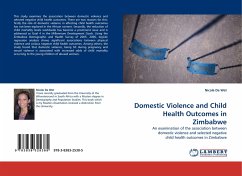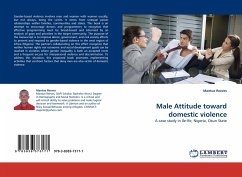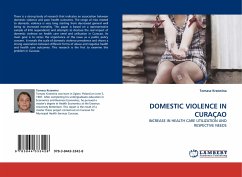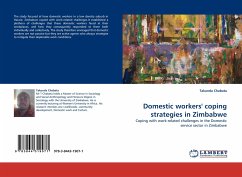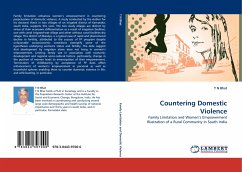
Countering Domestic Violence
Family Limitation and Women's Empowerment Illustration of a Rural Community in South India
Versandkostenfrei!
Versandfertig in 6-10 Tagen
45,99 €
inkl. MwSt.

PAYBACK Punkte
23 °P sammeln!
Family limitation enhances women's empowerment in countering perpetuation of domestic violence. A study conducted by the Author for his doctoral thesis in two villages of an irrigated district of Karnataka, south India, supports this view. The two study villages are distinct by virtue of their economic differentiation as a result of irrigation facilities; one with canal irrigated-wet village and other without canal facilities-dry village. This district of Mandya, is a typical case of rapid and phenomenal decline in fertility, attributed to the success of FP program despite unfavorable socioeco...
Family limitation enhances women's empowerment in countering perpetuation of domestic violence. A study conducted by the Author for his doctoral thesis in two villages of an irrigated district of Karnataka, south India, supports this view. The two study villages are distinct by virtue of their economic differentiation as a result of irrigation facilities; one with canal irrigated-wet village and other without canal facilities-dry village. This district of Mandya, is a typical case of rapid and phenomenal decline in fertility, attributed to the success of FP program despite unfavorable socioeconomic conditions exemplify some of the hypotheses underlying women's status and fertility. The data suggest that development by irrigation alone does not bring in women's empowerment. Limiting family size in association with economic development and regional socio-cultural factors, particularly, change in the position of women leads to emancipation of their empowerment. Termination of childbearing by acceptance of FP does affect enhancement of women's empowerment in personal as well as household spheres enabling them to counter domestic violence in life, and wife-beating, in particular.




